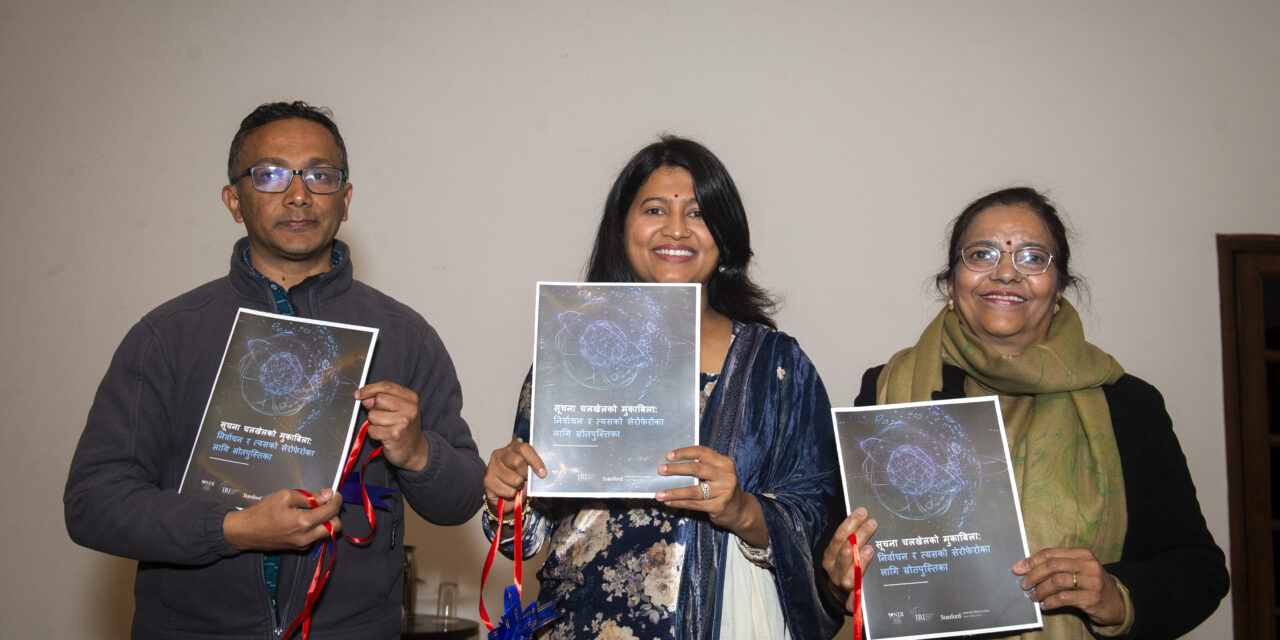The Nepali translation of “Combating Information Manipulation: A Playbook for Elections and Beyond“, a collaborative effort by the National Democratic Institute (NDI), International Republican Institute (IRI), and Stanford Internet Observatory, was launched at an event organized by the Center for Media Research-Nepal (CMR-Nepal) today in Kathmandu, Nepal.
CMR-Nepal chair Deepak Aryal, IRI’s Prema Thapa, and IFES Nepal’s Deputy Country Director Radhika Regmi Pokharel unveiled the translated playbook, emphasizing its crucial role in safeguarding Nepal’s information integrity.
The program delved deeper into Nepal’s current misinformation landscape with Assistant Professor of Journalism and Mass Communication at Tribhuvan University Rishikesh Dahal presenting outcome of his study.
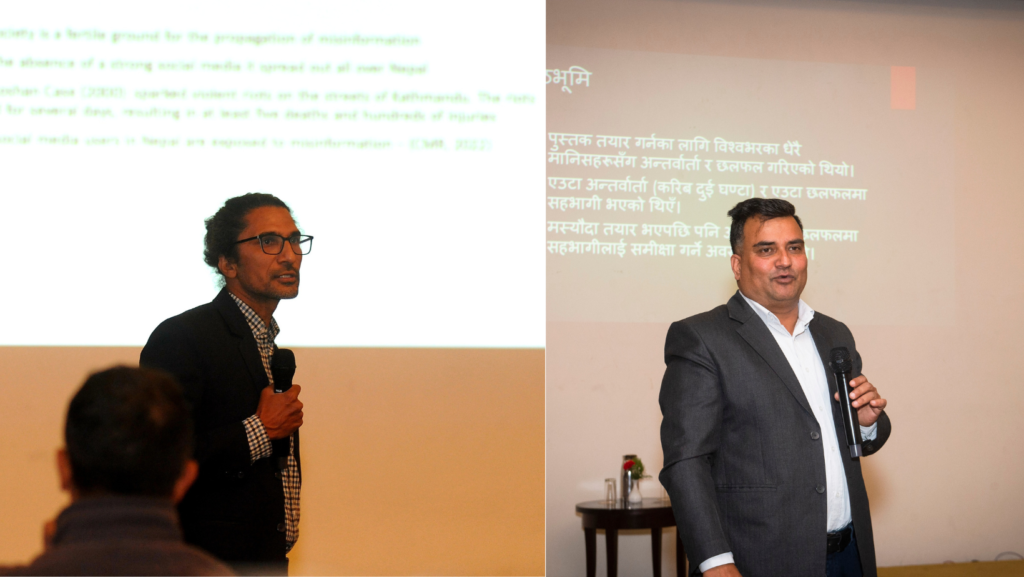
CMR-Nepal’s Ujjwal Acharya then detailed the playbook’s contents and how CMR-Nepal utilized it to develop and hold two-day workshops in all seven provinces of Nepal, equipping journalists, civil society, and political activists with tools to fight back against information manipulation.
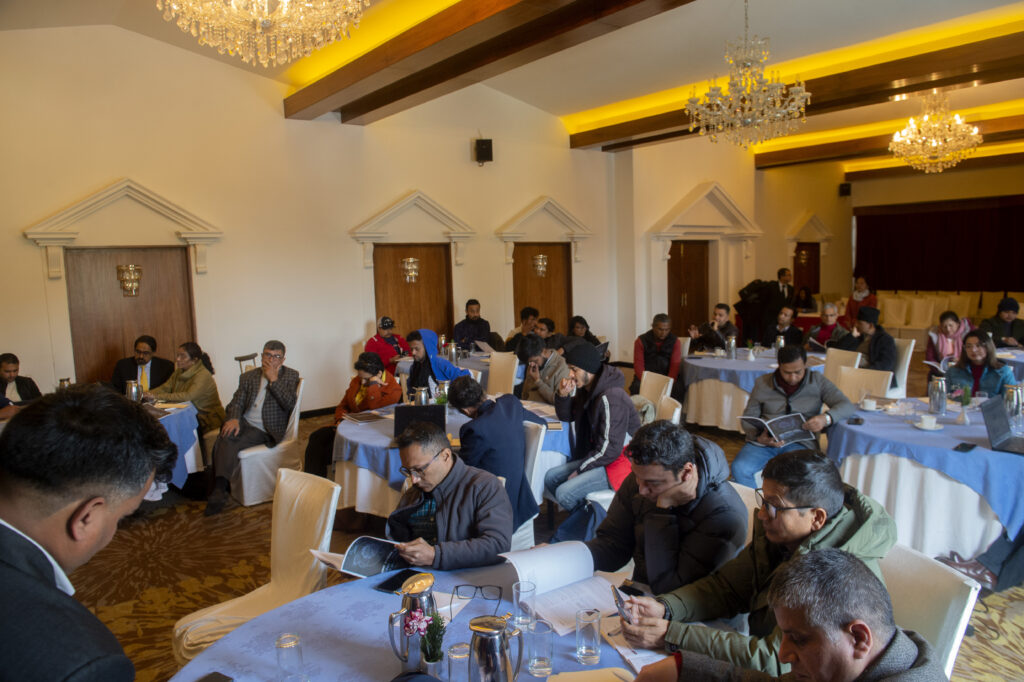
Acharya highlighted the three-pronged approach laid out in the manual:
- Identifying information manipulation: The book equips readers with tools to map the information environment, recognize common manipulation tactics like fabrication, distortion, and suppression, and identify suspicious online behaviors.
- Responding to manipulation: Practical guidance is offered on reporting misinformation to platforms, governments, and election management bodies. Additionally, the playbook explores strategies for fact-checking, creating counter-narratives, and raising public awareness through media campaigns.
- Building long-term resilience: Emphasizing the importance of proactive measures, the book delves into initiatives like digital literacy programs, media literacy education, and fostering collaboration between various stakeholders to combat misinformation effectively.
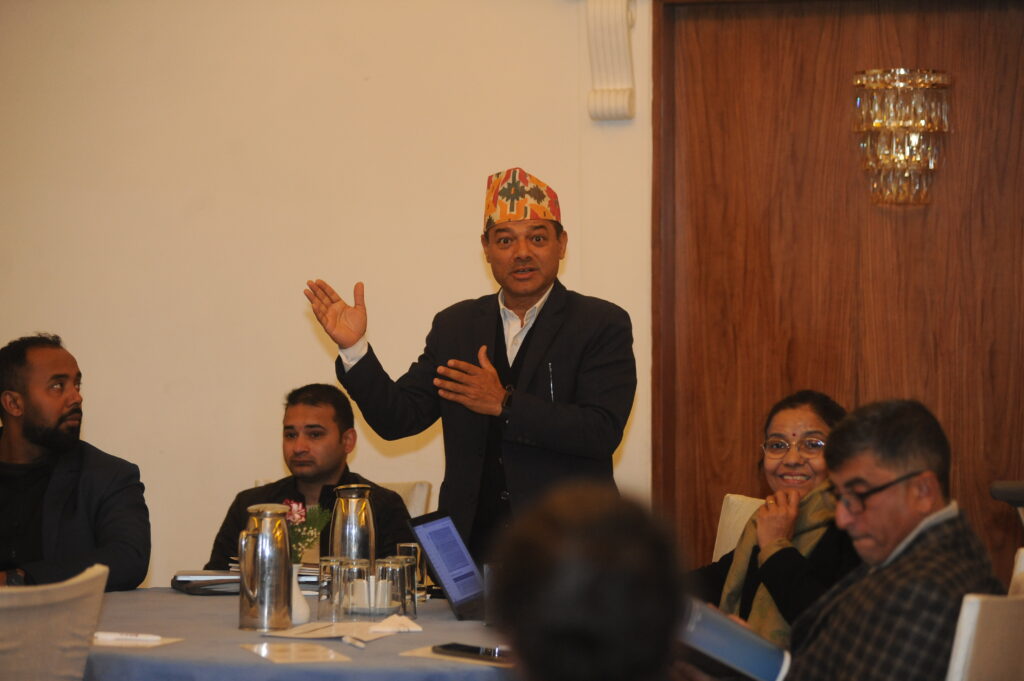
During the program, Salikgram Sharma Paudel, Under Secretary at the Election Commission of Nepal and Vasu Mohan, IFES’s Senior Country Director for Nepal and India programs, put forth their remarks.
Mohan said that there is a lot of information falsification happening worldwide during elections, and international initiatives like this translated playbook are crucial to combat it. By making such resources available in the local language, he hoped it would encourage stakeholders to broaden the debate on information manipulation and reduce its influence on elections.
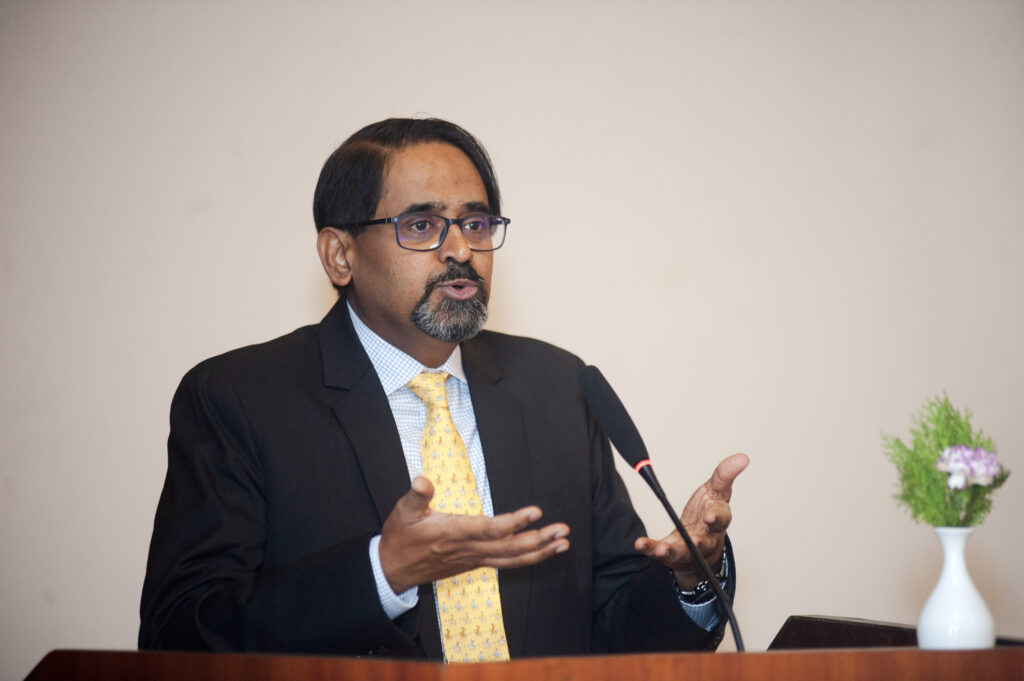
The translated playbook empowers Nepalese citizens and institutions with the knowledge and skills to identify, debunk, and report on misinformation attempts. CMR-Nepal’s nationwide workshops further amplify this impact, building grassroots resilience against manipulation tactics.
IRI Nepal’s senior program manager Youbaraj Acharya stressed on the need of whole-society approach to counter information manipulation which spikes during elections in Nepal.
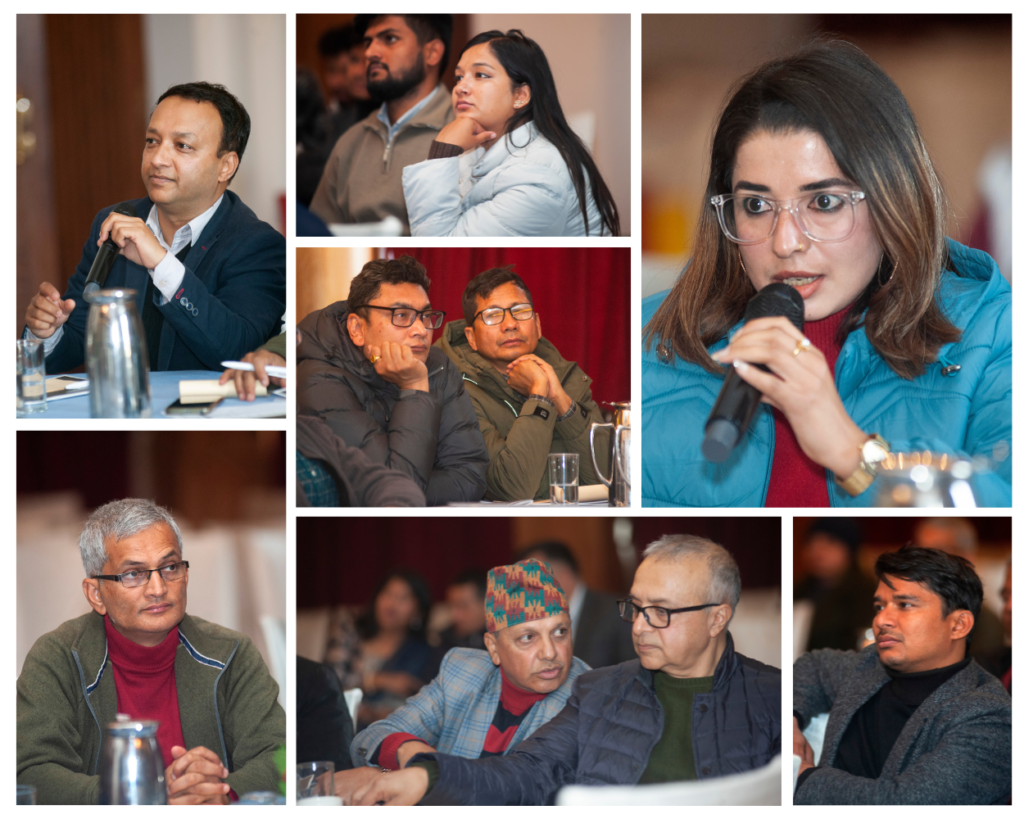
CMR-Nepal’s Executive Director Tilak Pathak, during this vote of thanks, highlighted the organization’s efforts in combating information manipulation through fact-checking, nationwide awareness campaigns and studies and roundtable discussions.
